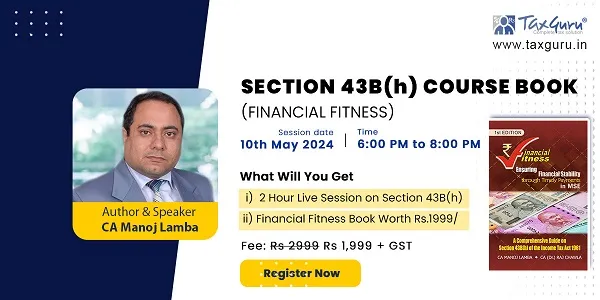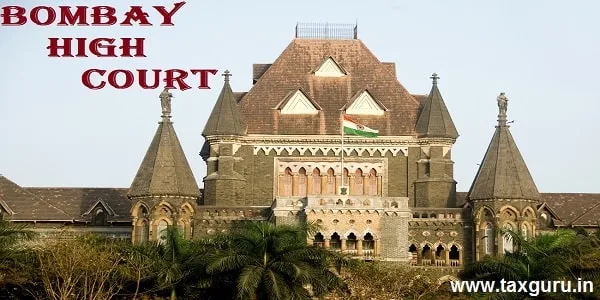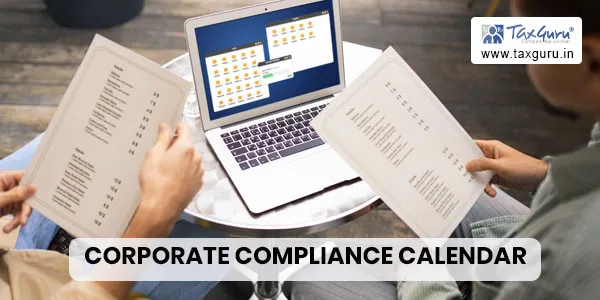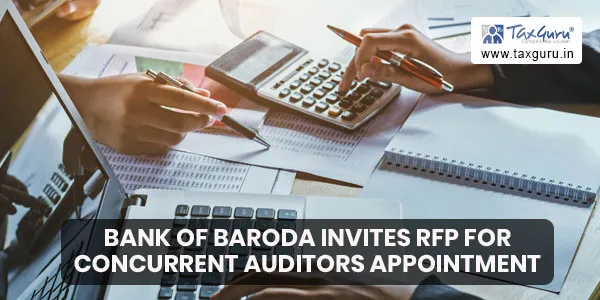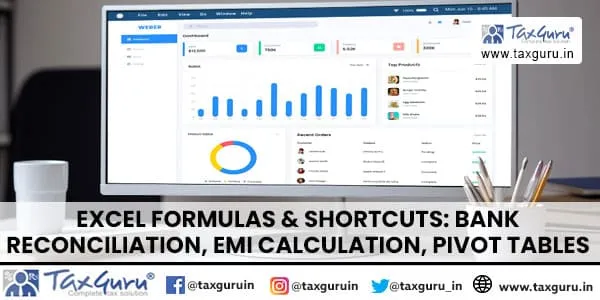Case Law Details
IN THE ITAT HYDERABAD BENCH ‘B’
Deputy Director of Income-tax (Exemptions) – II
V/s.
Andhra Pradesh Right to Sight Society
IT APPEAL NO. 184 (HYD.) OF 2011
c.o. no. 43 (hyd.) of 2011
[ASSESSMENT YEAR 2004-05]
AUGUST 3, 2012
ORDER
Smt. Asha Vijayaraghavan, Judicial Member
This appeal filed by the Revenue is directed against the order of CIT(A)-IV, Hyderabad dated 15/11/2010 for the assessment year 2004-05. The assessee also filed C.O. against the said order of the CIT(A).
2. Briefly the facts of the case are that the assessee filed its return of income for the assessment year 2004-05 on 21.10.2004. In that the assessee has mentioned they have utilized Rs.13.69 crores on acquisition of certain overseas equipment etc. as per the report of Comptroller and Auditor General (Civil) for the Government of Andhra Pradesh. A cross verification of the return shows that the total assets amounted to Rs.4,14,382/- only. Therefore notice u/s.148 was issued on 10.02.2009. However, even though the AO did not peruse the reason given for reopening viz., utilization of the amount of Rs.13.69 crores for acquiring overseas equipment, he had proceeded to withdraw the benefit to the assessee under Section 11 of the I.T Act and assessed the grant and contribution given by various persons including the state government as well as interest earned by the assessee. The main reason is that the main donor is the Government of Andhra Pradesh and application included expenses worth of Rs.4,88,49,585/- towards supply of equipment to Government Sector. The AO felt that if any part of the income or property of the trust is directly or indirectly applied for the benefit of any person mentioned in Section 13 (3) and benefit under Section 11 is not applicable.
3. By appeal before the CIT(A) the assessee submitted as under :-
5. During the course of appellate proceedings, the representative of the assessee submitted that the appellant society is a Charitable institution operating under the name ‘Andhra Pradesh Right to Sight Society’, which was formed with the objective of developing high quality sustainable comprehensive eye care services, aiming towards intensifying and accelerating the efforts throughout the state of A.P. for eradication of needless blindness by the year 2020. The programme of the assessee is a collaborative effort involving the World Health Organisation and International Agency for prevention of Blindness.
5.1 The appellant submitted that firstly the Assessing officer wrongly made an addition of Rs. 16 crores instead of the actual grant of Rs. 12 crores received by the society from the Govt. of the A.P. during the financial year 2003-04 for acquiring the latest equipments to be installed in different hospitals in the state. He further submitted that the State Govt. had given the said grant with a directions to carry out training programme for effective utilization of such instrument in conducting eye camps for the under privileged. The appellant’s representative averred that apart from supply and erection of equipments, the society is also engaged actively in the maintenance of equipments and imparting training on usage thereof. The representative averred that the operation and maintenance of equipments so installed is under the control and management of the society and therefore it cannot be inferred that the equipment had been donated to the govt. hospitals.
5.2 The representative further argued that for the purpose of sec. 13(1)(c), the ‘Government’ cannot be treated as a ‘person’, as it is not covered under the definition given in sec. 2(31) of the Act. He averred that the analogy given by the Assessing officer is incorrect as in cases of default committed in recovery of TDS by any Govt. authority; it is the ‘Drawing Officer’, who shall be responsible for such omission and not the Govt. itself. He pleaded that all the Governments have been established to take care of the poor and needy and the Govt. of A. P. does not derive any benefit directly in running these institutions except the welfare of public at large. He stated that in the appellant’s case the society, formed exclusively for blindness control programme had released the equipments to social organizations, including Govt. hospitals, which are managed by various govt. functionaries to enable the benefit of latest technologies to the benefit of the common man and to derive optimum utilization of the equipments.
5.3 With regard to the Assessing officer’s observation regarding ineligibility of the appellant for exemption u/s 11 on account of its non registration under the A. P. Charitable and Hindu Religious Institution and Endowments Act, 1987. It was submitted that the appellant’s society is not a private trust, but has been constituted by the Govt. of A. P., with Chief Minister and other principal heads of various departments as trustees and its functioning is monitored by the responsible persons of the Govt. He averred that the grants released by the Govt. are monitored by a task force committee. The representative submitted that the legislative purpose of registration u/s 43(1) of the above Act is to ensure that all the public and charitable institutions, which thrive on voluntary contributions, should conduct themselves in a fair and transparent manner. However, the appellant trust is formed by the Govt. itself and in view of its constitution and functioning, the benefits cannot be denied on account of its non registration under the said act. The appellant further contended that the Income tax Act, 1961 no where states that exemption u/s. 11 should be denied if the trust is not registered under a local statute.
5.4 The representative of the appellant further submitted that the observations made regarding the functioning of the society and lapses in utilization of the equipments are purely of an administrative nature and the underutilization of an asset set up by the society at the hospitals cannot be a ground for denial of the benefit u j s. 11, as such aspects are closely monitored by the Govt. bodies and by the task force. He averred that the assessing officer’s observation regarding the quality of the charity is not relevant.
4. After considering the submissions of the assessee, the CIT(A) allowed the appeal observing as under:-
“6. I have gone through the facts of the case and the submissions of the appellant. The first ground for refusal of exemption u/s. 11 is that the Assessing officer opined that by providing the equipments to the Government hospitals, the appellant had contravened of the provisions of sec. 13(I)(c)(ii). He opined that by way of the contribution of Rs. 30 crores, the Government became an ‘interested person’ within the meaning of sec. 13(3)(b). On a consideration of the provisions of the Act, however, I am of the opinion that the view taken by the Assessing officer is not sustainable. First of all it is clear that the Govt. is not a taxable entity. It is the authority that levies taxes and is not itself subject to the tax statute enacted by the legislature. This is the reason “Government” has not been included in the definition of ‘Person’ under sec. 2(31) of the I TAct, 1961.
6.1 As regards, the conclusion of the Assessing officer that the definition of the ‘Person’ given in the sec. 2(31) of the Act is to be read with the definition of ‘Assessee’ has given in sec. 2(7), I am of the opinion that the Assessing officer formed a wrong opinion that it was the Government, the Government of Andhra Pradesh in this case, against whom he had undertaken the proceedings. The fact is that the assessing officer had undertaken the assessment proceedings against the appellant society, which though formed at the behest of the government, is not the Government itself. Under the circumstances, the argument of the Assessing officer on this account is not sustainable.
6.2 As regards, the contention of the assessing officer that by way of its contribution of Rs. 32 crores, the Government had become an “Interested Person” as defined in sec. 13(3)(b), it is clear that the Govt. does not have any financial stake in the appellant’s society. Despite having made substantial contribution, it is not “a person who has a substantial interest’ in the appellant’s society. It is not entitled to any part of the profits of the appellant at any time.
6.3 Moreover, it is an established position of the law that what is barred u/s. 13(1)(c)(ii) is ‘the personal benefit of the trustees”, as was pointed out by the Hon’ble Allahabad High Court in the case of CIT Vs. Sri Radha Krishna Temple Trust (277 ITR 158). It is clear that by way of contributing equipments to the Govt. Hospitals, the Government did not get any personal benefit nor granted any personal benefit to any other interested person of the appellant’s society. In this regard, t is seen that Hon’ble Mumbai ITAT in case of Smt Chandarkala Somani Charitable Trust v. ITO (30 ITD 70) had observed that the word “benefit” has to be interpreted as an advantage, profit, fruit or privilege and, in the context in which it is used in the present section, it has to be treated as an advantage of a pecuniary nature. Referring to the decision of Hon’ble Madras High Court in the case of Manickvasagam Chettiar (53 ITR 292) the bench observed that the characteristic of a benefit is that it is real and not notional, concrete and not abstract, certain and not conjectural. However, it is clear that in the appellant’s case, no personal advantage or profit or privilege accrued to the Government itself or any other interested person. Obviously, it is not the case that the Assessing officer could establish that the equipments were used by any ‘Interested Person’, other than the Government also, for any personal pecuniary benefit. As regards, the Assessing officer’s observation regarding “quality of service”, I am of the view that the same is not a relevant consideration for examining the eligibility of an assessee for exemption u/s. 11. I therefore find that the assessing officer cannot be said to be correct in concluding that there was a contravention of provisions of sec. 13)(1)(c)(ii) in the present case on account of the equipments provided by the appellant’s society to Government Hospitals.
6.4 So far as, the denial of exemption on account of non registration of the appellant under sec. 43(1) of A P Charitable and Hindu Religious Institutions and Endowments Act, 1987 is concerned, it is seen that the Hon’ble Jurisdictional ITAT, Hyderabad in a recent decision dated 5.3.2010 in the case of Mis. Kamalakar Memorial Charitable Trust v. DIT (Exemptions) Hyderabad in ITA No. 1145/Hyd/09 have opined that in view of the decision of the Hon’ble Nagpur Bench of the ITAT in the case of Agricultural Produce and Marketing Committee, Telhara and ors v. CIT (97 TTJ 165), the mere fact that the assessee trust is not registered under the provisions of the said act, shall not render the assessee trust as a non charitable one. Respectfully following the said view of the Hon’ble Jurisdictional ITAT therefore, I am of the opinion that the appellant could not have been denied exemption under sec. 11 of the Act even on this ground.”
5. Aggrieved by the order of the CIT(A), the revenue is on appeal before us.
6. We have heard the arguments of both the parties and perused the record as well as gone through the orders of the authorities below. As held by the CIT(A), the definition of “person” under Section 2(31) includes legal authority but not Government itself. The Jurisdictional High Court in the case of CIT v. Dredging Corporation of India (174 ITR 682), has held that Government is not a person falling within the definition of Section 2(31) observing:
“It is a cardinal principle in the construction of enactments that, unless the context otherwise requires, the meaning of an expression contained in the Act should prevail throughout the Act. Therefore, whenever a different meaning is sought to be given to that expression occurring at different places in the act, it is necessary to point out why the context requires different meanings to be given to the same expression occurring at different places in the Act. Now, the definition of the expression “person” occurring in section 2(31) of the Income-tax Act, 1961, is a very crucial definition because it is with reference to the categories of entities specified in section 2(31) that the liability to tax under the Act is determined. If a person is not capable of being considered as a “person” within the meaning of section 2(31), then no liability attaches. If the State or the Government cannot be regarded as a “person” for the purpose of section 2(31) and, consequently, is immune from taxation, whether on the grounds of sovereignty or otherwise, it is natural to extend the same logic to understand the expression “person” wherever it occurs in the Act. There is no reason to give a different expression to the word “person ” which occurs in the Explanation to section 32(1)(vi).”
Therefore as held by the jurisdictional high Court, State Government cannot be considered as a ‘person’ under sec 2(31) and the Department has not pointed out any special circumstances as to why a different meaning should be given for the Phrase ‘person’ for the purpose of secs 11 to 13 so as to include the Sate government as a ‘person’ for these sections only. Therefore the contention of the Revenue that by giving the machines to the Government Hospitals sec. 13(1)(c) has been violated is not correct not only because State Government is not a person, but also because by no stretch of imagination can the government be said to have benefited by the machines out of the grant given by the government and given to the government Hospitals. The benefit accrues to the General Public and questioning the provision for badly needed medical equipment to the Government Hospitals which are clearly for the benefit of the Public at large on the ground that it has benefited the Government is against the fundamental principles of philanthropy of the trust.
7. The other ground raised by the revenue that the assessee has not registered under A.P. Charitable & Hindu Religious Institutions and Endowments Act, 1987 and hence the assessee is a non charitable one, is an argument to be admitted only to be rejected. The provisions of Sections 2(15), 11 to 13 are very clear and self contained code in respect of institutions which are considered as charitable in nature and the exemptions that these institutions are eligible for under the Income tax Act. These Sections no where refers that charitable institution to be eligible for exemption under Section 11 should also to be registered under any other Act for the time being. Once an institution is approved and granted registration u/s 12A, the department cannot refuse the registration except for violation of sec 11, 12 or 13. Therefore, eligibility for exemption under Section 11 of the Income-tax Act has to be independently considered based on the provisions of the Income tax Act and not anything else. In our opinion, therefore that the CIT(A) has rightly held that the exemption under Section 11 cannot be denied to the assessee merely because it is not registered under A.P. Charitable & Hindu Religious Institutions and Endowments Act, 1987 on appeal the assessee has not come up on this issue, we are not deciding on the validity of the reopening.
8. For the reasons stated earlier, on merits of the case, we accept the finding and conclusion of the CIT(A) and dismiss the revenue’s appeal.
C.O. NO. 43/Hyd/2011 by the assessee
9. The assessee filed its return of income admitting Nil Income. The case was selected for scrutiny by issuing notice u/s 143(2) and after discussing with the AR of the assessee and examination of books of account, the assessment was completed on 29/12/2006 determining the income at NIL. The assessment was reopened u/s 147 on 30/11/2009 and notice u/s 148 was issued on the ground that the assessee utilized Rs. 13.69 crores on acquisition of certain overseas equipment etc. as per the report of Comptroller and Auditor General (Civil) for the Govt. of Andhra Pradesh for the year ended 31/03/2004 on page-133. A cross verification of the return shows that the total assets amounted to Rs. 4,14,382/- only.
10. The CIT(A) confirmed the order of the Assessing Officer with respect to the reopening of assessment.
11. On appeal before us, the learned counsel for the assessee contended that the CIT(A) should have appreciated that the Assessing Officer in the present case had reopened the assessment on suspicion based on CIT (A)&AG of the AP State to verify whether the assets purchased from grants of the Govt., are appearing in the Balance Sheet or not and not based on any reason that there is escapement of income which amount to reopening merely on suspicion and surmises and based on general information available in the govt. website and not on record. He further contended that the CIT(A) should have annulled the assessment as the assumption of jurisdiction by Assessing Officer is illegal and without jurisdiction as no addition is made on the reason for which the assessment was reopened.
12. After hearing both the parties and perusing the record, we find that the information has been brought by the Assessing Officer for reopening from the report of Comptroller and Auditor General (Civil) for the Govt. of A.P for the year ended 31/03/2004, it was observed by the Assessing Officer that the assessee had utilized Rs. 13.69 crores on acquisition of certain overseas equipment etc. But, on a cross verification of the return of income filed by the assessee for the AY 2004-05 it was observed by him that the return showed total assets amounting to Rs. 4,14,382/-only.
13. The Assessing Officer cannot reopen the assessment merely on the basis of roving enquiry and since there is no addition with respect to the purchase of equipments the initial reason given for reopening cannot survive and the Assessing Officer cannot go beyond the reasons given by him for reopening. Hence, we allow the cross appeal of the assessee on the issue of reopening.
14. In the result, appeal of the revenue is dismissed and the C.O. filed by the assessee is allowed.




